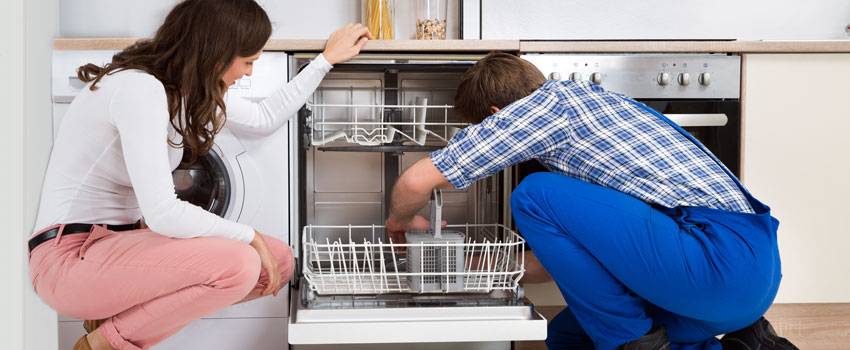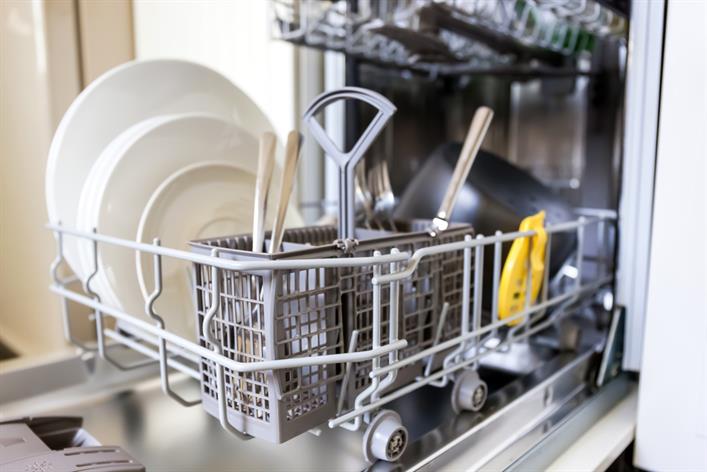Dishwasher Not Working?
Dishwasher Not Working?
Blog Article
The publisher is making several good observations regarding How to Troubleshoot & Repair a Dishwasher overall in this content directly below.

Having your dish washer break down or malfunction can be a big deal and create some pain in your home. Dishwashing machines are makers that we use to tidy recipes as well as cutleries instantly to conserve us the tension of by hand doing it.
Like every other maker that eases human initiative, dishwashing machines can break down and create some mistake eventually in time. There are numerous mistakes your dish washer might develop, and also while a few of them can be solved by changing some parts or repairing them, various other much more extreme flaws will call for that you get a new dishwashing machine.
This short article will certainly determine a couple of typical faults your dishwashing machine could create to hinder its general efficiency as well as just how these faults can be fixed.
Usual Faults
Typical dishwasher faults can range from small to significant ones. Depending on the degree, you will either need the solutions of professional plumbers to take care of or change it.
Some of one of the most usual faults include:
Leaking Dish washer
This is probably the most day-to-day dish washer problem, as well as the bright side is that it is easy to determine. Leakages occur due to several reasons, and also the leaks can bungle your kitchen. Typical sources of dishwasher leaks consist of;
Bad-Smelling Dishwasher
This is another typical dishwashing machine issue, and also it is mostly brought on by food particles or oil sticking around in the equipment. In this case, look for these particles, take them out and do the dishes without any dishes inside the device. Laundry the filter thoroughly. That will help get rid of the bad smell. Ensure that you remove every food particle from your dishes before moving it to the equipment in the future.
Lack of ability to Drain pipes
Often you may notice a huge quantity of water left in your bathtub after a wash. That is probably a water drainage issue. You can either inspect the drain hose for problems or obstructions. When in doubt, contact a specialist to have it inspected and fixed.
Does unclean appropriately
If your dishes and also flatwares come out of the dish washer as well as still look unclean or dirty, your spray arms may be a problem. In many cases, the spray arms can obtain blocked, as well as it will call for a fast clean or a replacement to function properly once again.
Final thought
Some of these usual dishwashing machine faults can be fixed conveniently in your home, but in some cases, the mistakes could be huge and might require the focus of experts. If you live in Rochester, Syracuse, and also other parts of America, let the specialists correctly diagnose what could be incorrect with your dishwashing machine and also proffer a solution.
We additionally set up dishwashers if you simply purchased a brand-new one or mean to replace your very own. With our many years of experience in the sector, we make sure to offer you the very best possible solutions.
8 Most Common Dishwasher Problems & How to Fix Them
My Dishwasher Isn't Draining
If your dishwasher isn't draining properly, you may be having an issue with your dishwasher's drainage system. This can be caused by a variety of issues:
Clogged drain: The dishwasher's drain may be clogged with food particles or other debris. Malfunctioning pump: The dishwasher's pump is responsible for moving water through the system and out of the drain. If it's damaged or not working correctly, it could cause a drainage failure. Broken or clogged hose: The dishwasher's drain hose may be broken or clogged, causing water to back up in the system. How to Fix Dishwasher Not Draining
Check the drain for any blockages. A clogged or kinked hose will prevent water from properly draining out of the dishwasher. Use a plunger or a pipe snake to clear any debris that may be blocking the drain. Check the dishwasher's pump for damage or malfunction. Consult the manufacturer's manual or call a professional appliance repair service if you think the pump may be the issue. Check the drain hose for any damage or blockages. The hose should be straight and free of any debris or kinks. Check the drain pump filters for any blockages if the hose is clear, but the dishwasher is still not draining. Some dishwashers have filters that can become clogged with food particles or debris. Cleaning or replacing the filters may help resolve the issue. Run a dishwasher cycle to make sure the water is properly draining out. My Dishwasher Is Leaking
A leaking dishwasher can be frustrating. There are a few possible causes that you can investigate to try and diagnose the issue:
Inspect the dishwasher for any visible signs of damage or wear and tear. Look for cracks or holes in the door and around the rubber seal. Check the hoses and pipes connected to the dishwasher for any signs of leaking. If there is no visible damage, you may hear the sound of water dripping or the sound of the water pump running. This might mean a problem with the water inlet valve or the drain pump. You may also notice a puddle of water on the floor near the dishwasher. This could indicate a blocked drain hose or a faulty drain pump. Finally, check the seals around the door and the door for any signs of damage, wear and tear, or improper installation. If any of these issues are present, they must be fixed immediately to avoid further water damage. How to Fix a Leaky Dishwasher
Identify where the leak is coming from. The most common places for a dishwasher to leak include the door, hoses, and pump. If the leak is coming from the door, the gasket or seal may need to be replaced. If the leak is from the hose or pump, the damaged parts should be replaced with new ones. Finally, check all the connections and make sure they are secure and not leaking How to Fix a Dishwasher That Won't Start
The perfect remedy for a dishwasher that won't start is confirming all the components are in perfect working order and that the wiring is in good condition. Next, inspect the motor and replace it if necessary.
If these steps do not resolve the problem, contact a professional appliance repair technician to diagnose and fix the issue.
Conclusion
Most dishwashers are reliable appliances with a long lifespan. As with all devices, checking your dishwasher regularly will help you quickly identify any issues and ensure that it is running efficiently.
And if you're in the market for a new dishwasher, don't let dishwasher problems ruin your day. Upgrade to a reliable, efficient model today! Check out our full selection of top-quality dishwashers that includes a range of styles and features to suit any budget and household needs.
https://www.coastappliances.ca/blogs/learn/common-dishwasher-problems

I am very focused on The Most Common Dishwasher Problems and I really hope you appreciated our post. For those who liked our blog entry please do not forget to pass it around. Thank-you for your time spent reading it.
Book With Us Today! Report this page